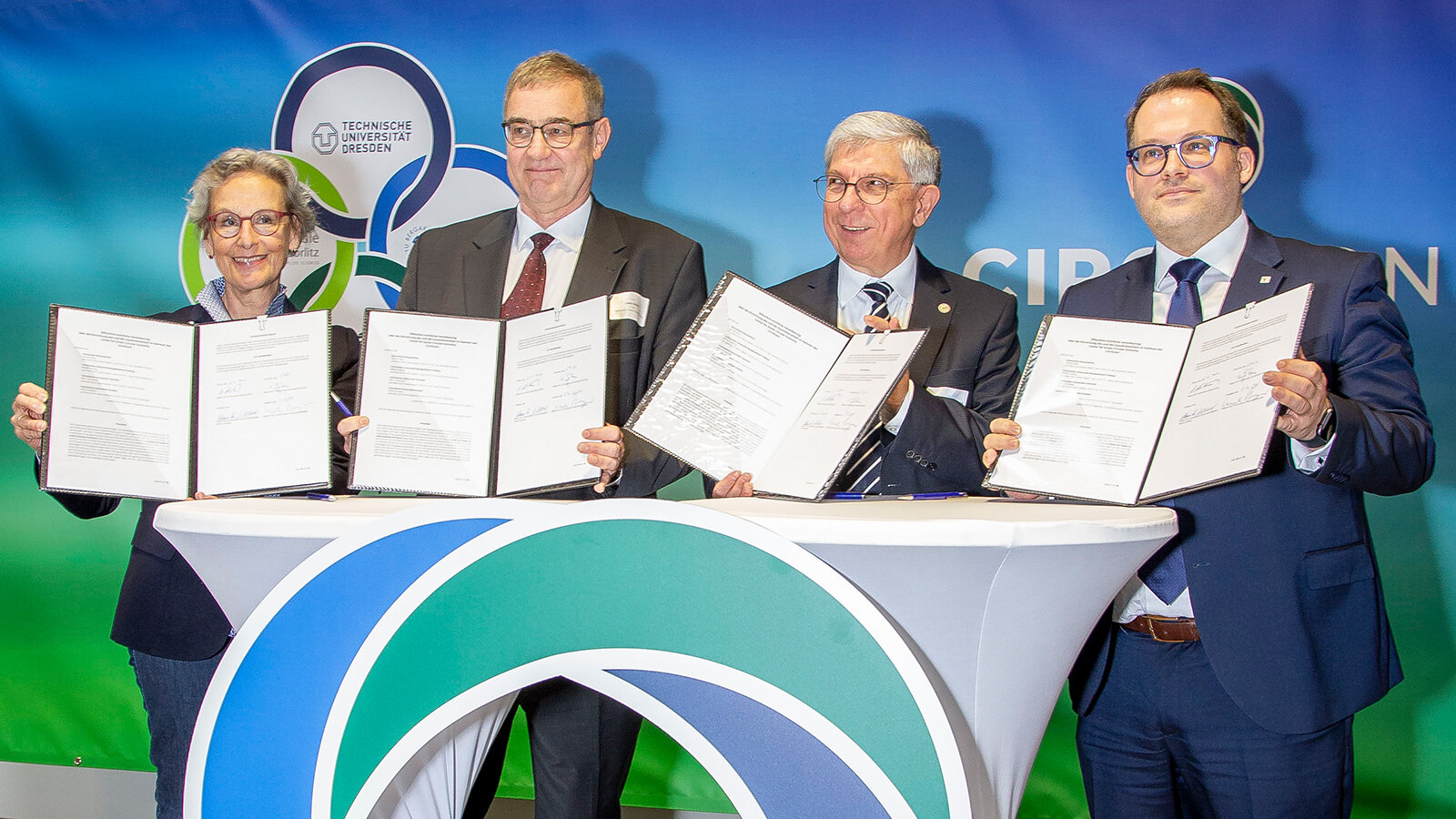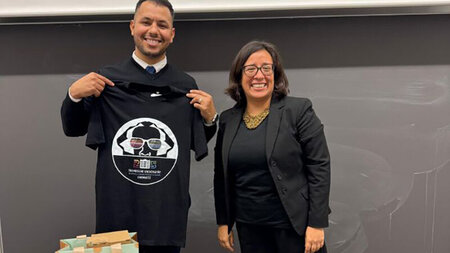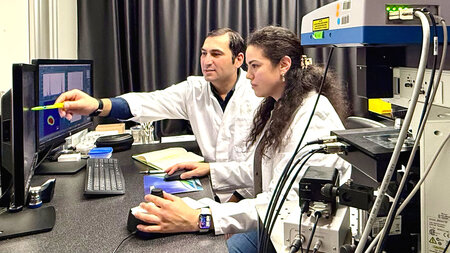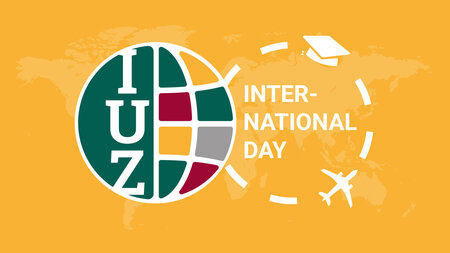Europe-wide unique pilot project for a greenhouse gas-neutral circular economy is underway in Lusatia
The three Universities of Technology in Chemnitz, Dresden and Freiberg and the Zittau/Görlitz University of Applied Sciences signed the cooperation agreement for the joint establishment of the "Green Circular Economy" (CircEcon) research campus, which will receive over EUR 108M in funding
-

Prof. Ursula Staudinger, Rector of TU Dresden (TUD), Prof. Uwe Götze, Vice-Rector Transfer and Continuing Education at TU Chemnitz (TUC), Prof. Klaus-Dieter Barbknecht, Rector of TU Bergakademie Freiberg (TUBAF), and the Rector of Zittau/Görlitz University of Applied Sciences (HSZG) - Prof. Alexander Kratzsch - signed a cooperation agreement. Photo: Jörg Lubiger (TU Dresden)
On April 5, 2024, Prof. Ursula Staudinger, Rector of TU Dresden (TUD), Prof. Uwe Götze, Vice-Rector Transfer and Continuing Education at TU Chemnitz (TUC), Prof. Klaus-Dieter Barbknecht, Rector of TU Bergakademie Freiberg (TUBAF), and the Rector of Zittau/Görlitz University of Applied Sciences (HSZG) - Prof. Alexander Kratzsch - signed a cooperation agreement at the industrial park “Schwarze Pumpe” near Spremberg to establish the "Green Circular Economy" (CircEcon) research campus for a greenhouse gas-neutral circular economy, the only one of its kind in Europe. The signing took place in the presence of Thomas Schmidt, Saxon State Minister of Regional Development, and Dr. Andreas Handschuh, State Secretary of the Saxon State Ministry for Science, Culture and Tourism.
With these joint pilot lines, test facilities and demonstration systems, the participants are pooling their expertise in the field of materials and production technologies, as well as process and recycling technology, in order to map future-oriented technologies for the circular economy onto an industrial scale, thus initiating the creation of new jobs through the establishment of companies and spin-offs in the region.
"CircEcon" is scheduled to begin operations at the end of 2026. Up until this date, the Federal Government and the Free State of Saxony will invest around EUR 108M. Around EUR 48M of this will be used for the construction of the center, leaving around EUR 60M for equipment and pilot plants.
Prof. Ursula Staudinger, Rector of TUD: "By signing the contract today, we are creating the basis for a unique cooperation between the three Universities of Technology in Saxony and the Zittau/Görlitz University of Applied Sciences in the highly innovative field of the circular economy, thereby making a valuable contribution to structural change. CircEcon will allow us to establish a unique European technology network for the development of new materials and production technologies as well as process and recycling techniques at the industrial park “Schwarze Pumpe”. TU Dresden is delighted to coordinate the construction measures in close cooperation with its partner universities and on behalf of the Saxon Property and Construction Management. In the future research center, we are exploring the closed circuit from component production to comprehensive recycling and reuse. This will make Lusatia an internationally visible, technological region that excels in the field of the circular economy - a win-win situation that opens up the prospect of new jobs and dynamic development for the region, all the while enabling us to improve research and transfer and to explore new forms of cooperation in the field of the circular economy."
Prof. Uwe Götze, Vice-Rector Transfer and Continuing Education at TUC: "TU Chemnitz is actively pursuing the strategy of setting up regional offices in order to promote its regional effectiveness, as well as effectively establish itself and increase its visibility in the Free State of Saxony, all the while fulfilling its economic and social responsibility. CircEcon is the fourth regional office of our university to be launched - this time as a joint institution in cooperation with three partner universities. This close collaboration will open up new paths towards a highly efficient circular economy through coordinated research activities on the future campus. The transfer of acquired knowledge into innovations will not only provide new approaches to climate protection, but will also make a significant contribution to regional development in Lusatia. We would like to thank the many people involved in this complex and future-oriented project for their valuable input and contributions - especially Prof. Lothar Kroll and his team at Chemnitz University of Technology."
Prof. Klaus-Dieter Barbknecht, Rector of TUBAF: "TU Bergakademie Freiberg is contributing its comprehensive expertise in the fields of processing technology, metallurgy and materials technology to the project. The focus is on the high-quality recycling of composite materials and metallic lightweight materials. With the large-scale pilot plants that will be set up as part of CircEcon, we can accompany innovative technologies from their conception to market maturity. We are certain that this will effect a sustainable transformation of the region and its economy."
Prof. Alexander Kratzsch, Rector of Zittau/Görlitz University of Applied Sciences: "The signing of the cooperation agreement for the 'Green Circular Economy' project marks a very special moment for our Zittau/Görlitz University of Applied Sciences. With this pilot project, which is unique in Europe, we are joining forces and boldly entering the future of the circular economy. CircEcon will not only become an innovation center for sustainable technologies, but also an engine for regional development and new jobs in our home region of Lusatia. It shows what great things universities of applied sciences can achieve and that, alongside strong partners, we can play a pioneering role in shaping a sustainable future."
About CircEcon
Due to the necessary phasing-out of the coal-fired power generation by 2038, Lusatia is in the midst of an accelerated structural change. For the region and its inhabitants, this means major challenges - but also a great opportunity to emerge even stronger. Chemnitz and Dresden Universities of Technologies, TU Bergakademie Freiberg and the Zittau/Görlitz University of Applied Sciences are contributing to this and pooling their expertise in the field of materials and production technologies as well as process and recycling technology. "CircEcon," a center for researching and developing new technologies for recycling and reusing fiber composites from wind turbines, for example, is to be established that is unique in Europe.
With joint pilot lines, test facilities and demonstration systems, research expertise in Saxony is being linked in a targeted manner for the first time, and innovative approaches to the efficient structuring of the circular economy are being developed and marketed alongside regional companies. Modern methods, such as comprehensive digitalization and artificial intelligence, will be used to manage energy and recyclable materials in order to realistically map the entire value chain - from raw material extraction and processing of recyclables and materials to re-production - and to round it all off, it will be done in an industry-relevant, greenhouse gas-neutral manner.
(Source: TU Dresden press release)
Mario Steinebach
05.04.2024




